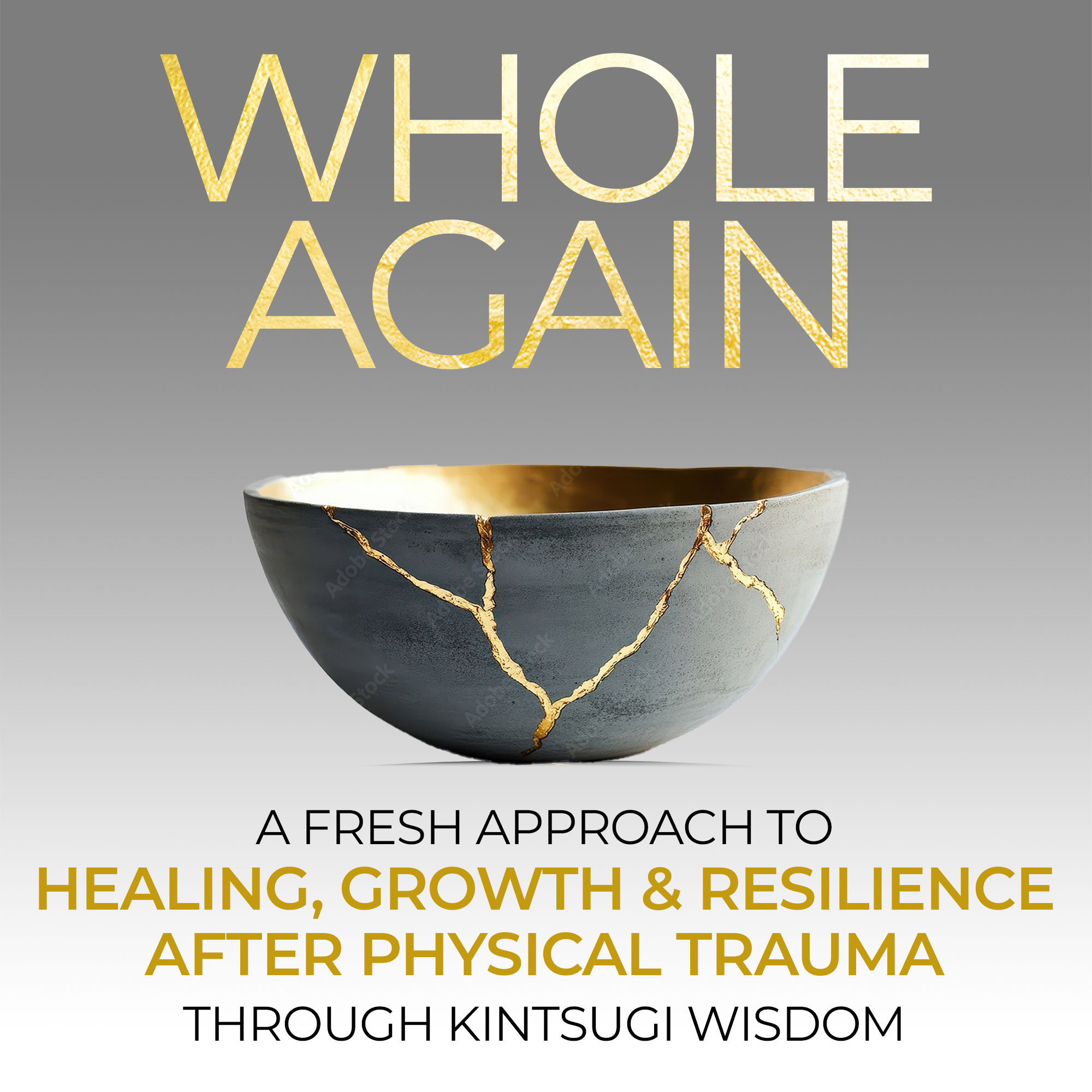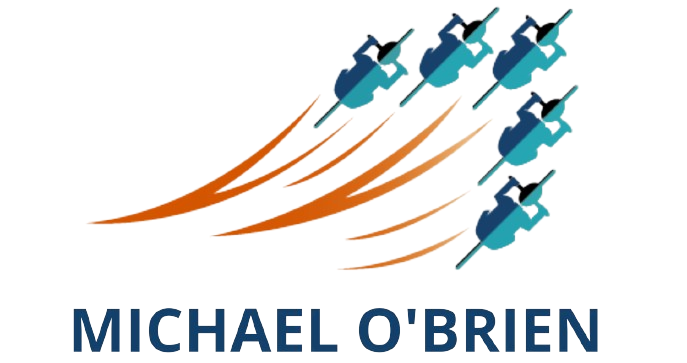
197 | Are You Holding Your Breath? The Surprising Impact on Healing, Resilience & Mindfulness (Self-Care for Trauma Survivors)
Did you know that up to 85% of people hold their breath while reading emails or texting—without even realizing it?
In today’s episode, we uncover the hidden ways poor breathing habits affect your health, stress levels, and resilience. You’ll also learn three simple techniques to breathe better and feel more energized—starting right now. If you’ve ever felt tension creeping in while working or using your phone, this episode is for you.
00:00 Introduction to the Episode
00:38 The Importance of Breathing
01:28 A Story of Gratitude
02:50 How to Breathe Properly
03:52 Tips for Better Breathing
05:16 Creating Better Breathing Habits
06:20 Digital Wellness Tip
07:54 Conclusion and Final Thoughts
Takeaways:
- Discover the #1 place you unconsciously hold your breath and how it impacts your well-being.
- Learn three easy breathing techniques that can boost your focus, reduce stress, and improve overall health.
- Get a powerful digital wellness tip to help you breathe better while working on emails and texts.
Hit play now to uncover simple yet powerful breathing techniques that can transform your health, focus, and daily well-being.
If this episode sparked something within you, please download it and share it with a friend.
Kintsugi is the Japanese art of repairing broken pottery with gold, silver, or lacquer, highlighting the cracks rather than hiding them. It embodies the philosophy of wabi-sabi, which finds beauty in imperfection and teaches that breakage and repair are part of an object’s history, making it more valuable rather than less. Metaphorically, Kintsugi reminds us that our challenges, scars, and setbacks are not something to be ashamed of but can be embraced as a source of strength and transformation.
Discover how to scroll less and live more by taking my Free Smartphone Wellness Audit by clicking phone.
Did you know that stickers are wonderful visual cues to help you create healthy habits? You can get one of my free Pause Breathe Reflect sticker by clicking sticker.
To discover more and sign up for My RIPPLE EFFECT newsletter by clicking Ripple Effect.
We can also connect on LinkedIn.
Subscribe to be sure you don’t miss any of the micro-meditations, wellness tips, and guidance that I publish every Monday, Wednesday, and Friday at 7:11 am.
If you feel you need more mental health support, please contact NAMI. This is a good place to start. If you have a question or comment, please reach out to Michael@PauseBreatheReflect.com.
With Whole Again: A Fresh Approach to Healing, Growth & Resilience after Physical Trauma through Kintsugi Wisdom, listeners explore resilience through personal stories of trauma, scars, and injury while learning to overcome imposter syndrome, self-doubt, and perfectionism with self-compassion, self-love, and self-worth. Through insightful discussions on stress management, mindfulness practices, and digital wellness, the show offers practical tools like breathwork, micro-dose meditation, grounding techniques, visualization, and daily affirmations for anxiety relief and stress relief. Inspired by the art of kintsugi, the podcast embraces healing as a process of transformation, encouraging a shift in perspective from worry and being overwhelmed to gratitude and personal growth. By exploring the mind-body connection, micro-dosing strategies for emotional well-being, and holistic approaches to self-care, this podcast empowers listeners to cultivate emotional resilience and live with greater balance and intention.
Whole Again Podcast:
In this episode, I’ll share where you might be holding your breath the most and how it impacts your health. Hey there, it’s Michael. Welcome to Whole again. A show about helping survivors a physical injury and trauma, reclaim their strength and resilience through the wisdom of Kazuki on Fridays. I love sharing.
I. A microdose of wisdom to help you become whole again and step into the person you’re becoming. And today I wanna share the importance of breathing. Yep, that’s right. Breathing. It’s something that we don’t really think about, but probably should. But before we get there, I first wanna say thank you. For being here as a fellow survivor, I know that showing up is hard sometimes, so the fact that you’re here, that you have shown up means the world.
So thank you for showing up and being a survivor. A all right, let’s talk about breathing, which is something we don’t have to remember to do. Thank goodness, right, because the body does it for us automatically. Let me start by sharing a story with you. Last summer, I went into New York City on the anniversary of my last bad day to put out a few ripples of gratitude.
I walked up to complete strangers and I ask them in 23 seconds, name all the things you’re grateful for. The day was awesome sauce. It was so much fun. And I posted many of the videos on my LinkedIn page because, well, I believe companies could use a little bit more gratitude, if you know what I’m saying.
So you can check those out. And I also asked everyone, Hey, how many breasts do you think you take each day? And people had no clue because. It’s not something we think about a lot. Well, the answer is between 20 and 25,000 breaths per day. That’s a lot of breathing. But here’s the rub. Most of us are not doing it correctly.
Yep, that’s right. James Nestor, who came on this podcast, and I’ll include the link to that episode in the show notes, writes about how to properly breathe in his book called Breath. So I wanna share a few tips I learned in the early phases of my recovery and through my study as a meditation teacher that James writes about to help ensure that you’re breathing properly because your breath.
Since you’re doing it so many times per day, it’s essential for your overall wellbeing, your overall health, and healing, and growth and resilience. So let’s start here. Most of us tend to breathe through our mouth, especially when we sleep. So today, I wish to encourage you to bring attention to how you’re breathing.
Are you breathing through your mouth? Especially when you’re sleeping, or are you breathing through your nose, which is a healthier way of breathing. So for today, let’s just focus in on how you’re breathing, whether it’s through your mouth or your nose. Okay, here’s the second way that can help us breathe better.
So for tomorrow. Take a few moments for a minute or two and simply count how many inhales and exhales you take in a minute. Begin to notice what it feels like to take just six to 10 and practice that paying attention on purpose to the frequency of your breath. And here’s the third tip, and you can do this the following day.
We also breathe. Not deeply enough. So on the third day, put one hand on your chest and one hand on your belly and breathe deep into the belly. And as you do, you’ll notice the belly pushes out. It’s almost like you have a little bit of a beer belly, but breathing this way is breathing deeply and. A healthier way to breathe, but for many of us, we’re breathing too frequently, 20 to 25,000 times a day, and through our mouth, not our nose, and our breath is too shallow during the next three days.
Focus on one aspect each day. You don’t have to do all three at once. Sometimes we take on. And that gets in the way of our progress, gets in the way of our healing and growth over the next three days. Take one aspect per day and simply bring awareness to how you’re breathing. And when you get to the fourth day, you can start combining all these different ways of breathing better.
But give yourself some grace, a little patience. You’ve been breathing, breath the way you’ve been breathing automatically for years now. So creating a new habit will take some time. But here on whole, again, we create better habits, step by step, breath by breath, consistently over time. You’ve got this, and here we’ve got you all.
Now as we finish up, I promise to share the one place you’re holding your breath and the impact it has on your health. And here it’s, did you know that many of us up to 85% of us hold our breath while we do email and text messages? This is based on some research by Linda Stone, a former Microsoft and Apple executive.
When you think about how many emails you crank out each day or text messages, whoa, Nelly, that’s a lot of unintentional breathing, but you’re human.
A biological stress reaction to stuff that we don’t know, like what’s behind that email? Is it a threat or something else? Plus we get super focused on our screens and we forget to breathe, and our posture usually stinks. We slouch, which does not enable proper belly breathing that we just talked about.
So all this is natural. And it can get better. So the digital wellness tip of the week is to bring attention to your breathing as you crank out your emails and text messages. This will improve not only your digital health, but your overall health. So try that out and let me know what you experience.
And there you have it. A microdose of wisdom about the importance of breathing. In this episode, I shared three different ways you can breathe better, namely breathing through your nose, belly breathing, and breathing more slowly. And our digital wellness tip of the week to remember to breathe while you crank out your email and text messages.
And as always, thank you. For being here. Thank you again for being a survivor. Remember, you’ve got this. And we’ve got you.
And if you wish to further enhance your digital wellness, I’ll invite you to take my smartphone wellness check. It’s free, and you can find the link in the show notes and discover how to scroll less and live more. And I hope you’ll join us each Monday, Wednesday, and Friday. At 7:11 AM Eastern here on Kintsugi and discover how we can celebrate our scars as golden symbols of strength and resilience.
Again, thanks for being here. I appreciate you.




Leave a Reply